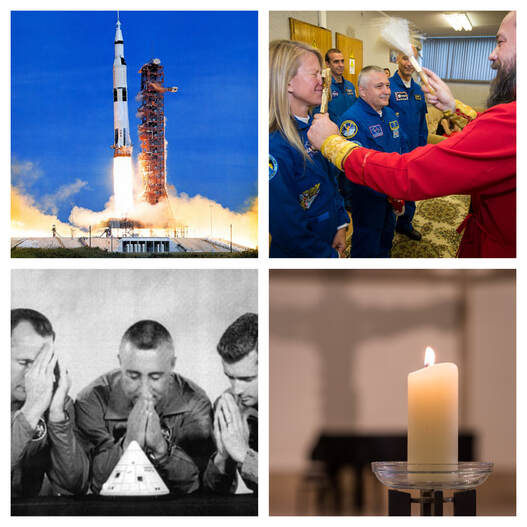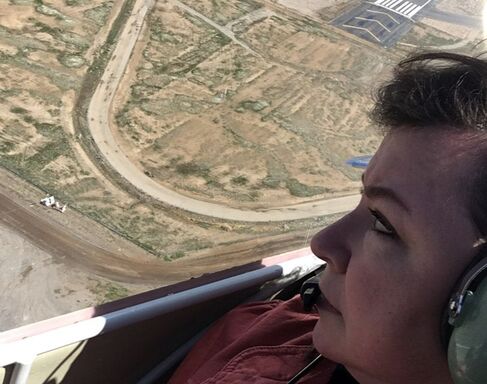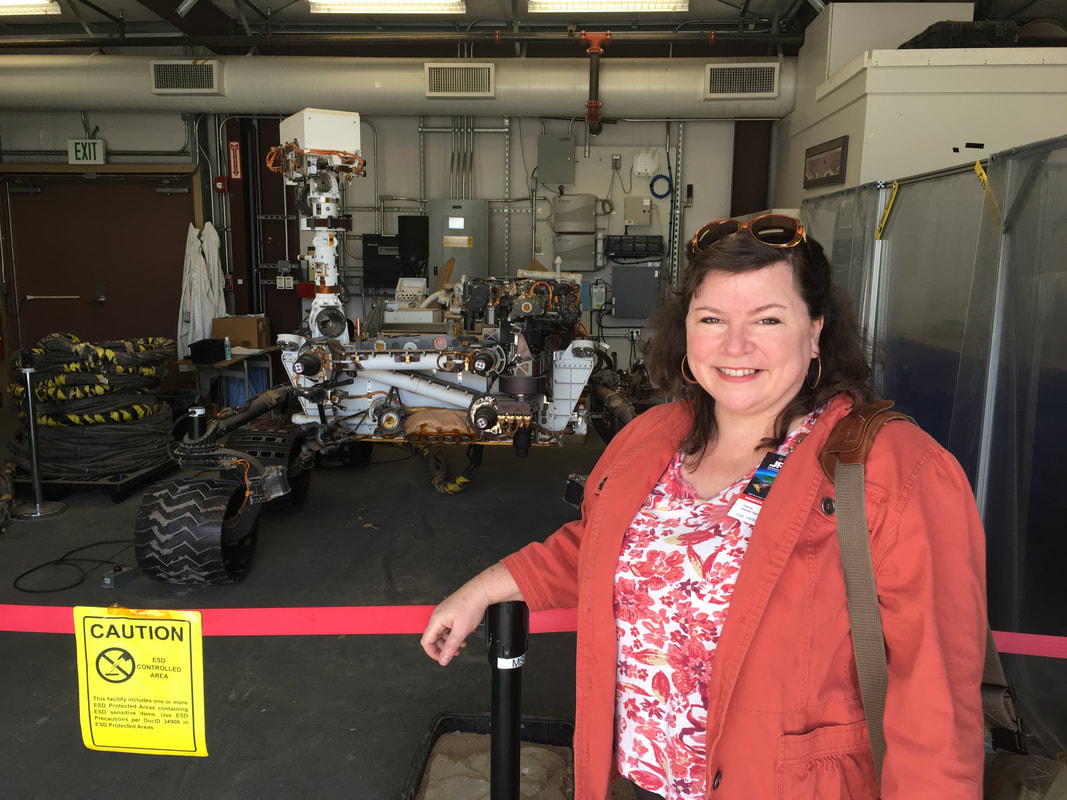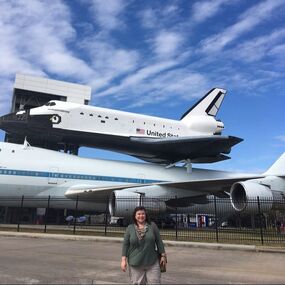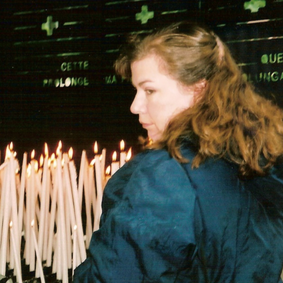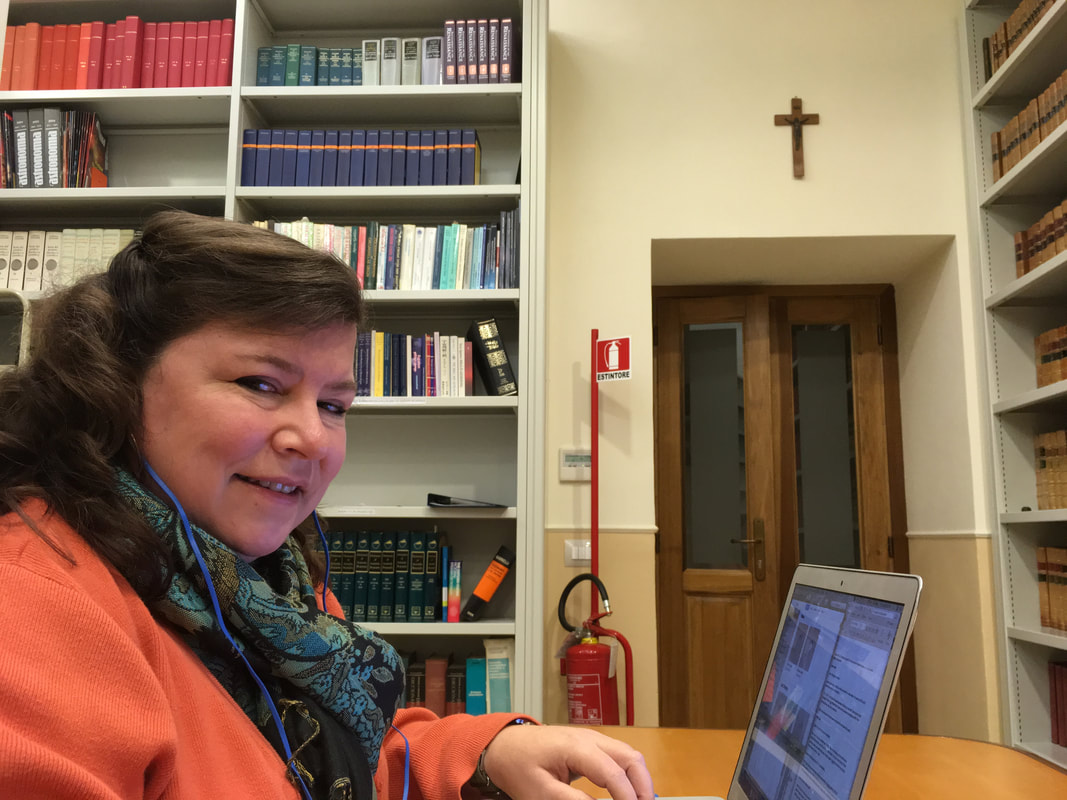Deana L. Weibel, Ph.D.
Photo credit belowKendra Stanley-Mills/GVSU University Communications. Patch designed by Karl Tate, karltate.com.
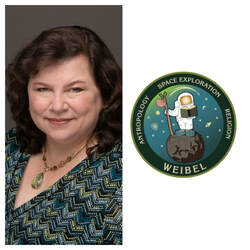
I’M BOTH A SPACE ANTHROPOLOGIST AND AN ANTHROPOLOGIST OF RELIGION …In 1995 I undertook my first field study, in the French shrine towns of Lourdes and Rocamadour. Decades of studying religious pilgrimage passed, but my childhood fascination with space (and the humans who study and travel into space) persisted. In 2004 I conducted my first interview with a NASA astronaut, but continued researching the veneration of Black Madonnas, religious concepts of “energy,” and the competition between pilgrimage and tourism at Rocamadour. I wanted to know how people understand what makes places sacred, pilgrims’ concept of “sacred space,” and how they thought objects interacted with sacred places to become sacred themselves.
By 2015, though, my interest in the place of religion in space exploration moved to the forefront of my research. Over the next few years I began interviewing additional astronauts, astronomers, engineers, and others with links to NASA and planetary sciences. I spent a 2019 sabbatical conducting a multi-sited ethnography on the manifestation of religion among NASA Human Research scientists, technicians, astronauts, flight surgeons, engineers and pilots in the private space industries of the Mojave desert, Jet Propulsion Laboratory staff, and the Jesuit astronomers of the Vatican Observatory. My ethnographic research into space exploration reveals that religion is a fundamental part of human culture.
A human presence in space means that religion will be practiced in space. But how?
By 2015, though, my interest in the place of religion in space exploration moved to the forefront of my research. Over the next few years I began interviewing additional astronauts, astronomers, engineers, and others with links to NASA and planetary sciences. I spent a 2019 sabbatical conducting a multi-sited ethnography on the manifestation of religion among NASA Human Research scientists, technicians, astronauts, flight surgeons, engineers and pilots in the private space industries of the Mojave desert, Jet Propulsion Laboratory staff, and the Jesuit astronomers of the Vatican Observatory. My ethnographic research into space exploration reveals that religion is a fundamental part of human culture.
A human presence in space means that religion will be practiced in space. But how?
Work and LifeWork:
I do ethnographic research on pilgrimage, sacred places, and the way outer space is interpreted in a religious way. I'm interested in any and all overlap between space exploration and religion. I have interviewed NASA space doctors and technicians, astronauts, physicists, engineers, and test pilots about how their religious beliefs (or lackthereof) influence the way they understand space and humanity's place in the universe. Life: In addition to English, I speak fluent French, decent Spanish and rudimentary Italian. I live in Michigan with my amazing husband, legendary son, and two great cats. I love travel, animals, and genealogy. |
Contact Information
|
Deana Weibel, Ph.D.
[email protected] Professor, Anthropology Department IRIS: Integrative, Religious, and Intercultural Studies Department Co-Organizer, Roger That! Telephone: 616-331-3346 Twitter and Instagram: ethnoethereal Lake Michigan Hall 227 Grand Valley State University |
